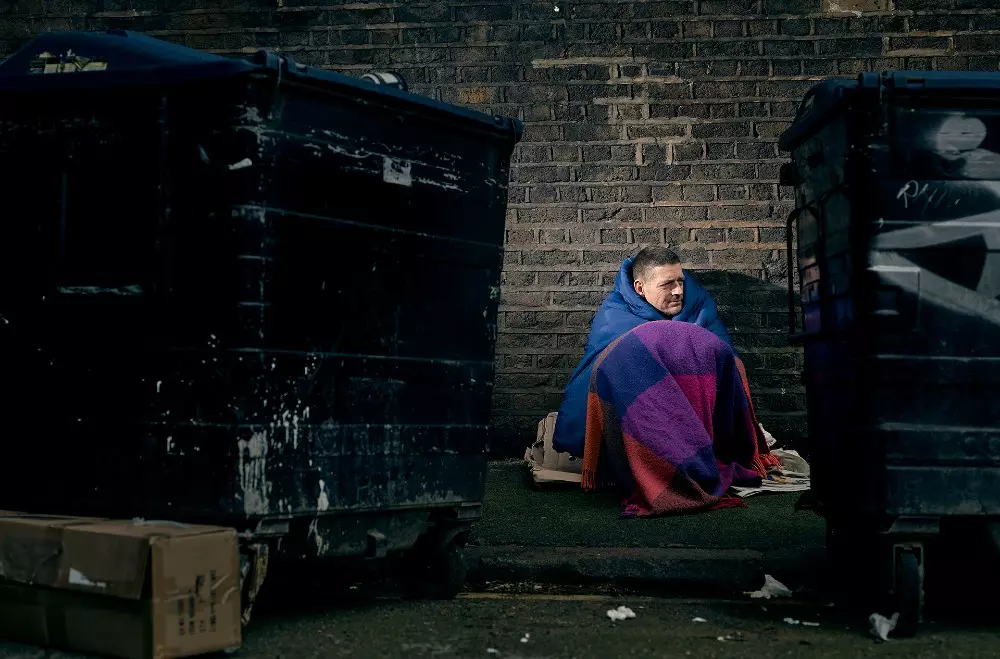Rough sleepers need proper support, not prison or fines
published on 11 Apr 2024
The Salvation Army has joined with other homelessness organisations calling on the Home Secretary to remove proposals in the Criminal Justice Bill which could see rough sleepers fined or imprisoned for ‘nuisance’ rough sleeping.
The Criminal Justice Bill will replace the outdated Vagrancy Act, technically repealed in 2022, which criminalised begging and rough sleeping.
In an open letter from the sector, drafted and coordinated by Crisis, the Home Secretary was reminded of the Government’s manifesto commitment to end rough sleeping by the end of this year, raising concerns that criminalising rough sleeping will undermine this commitment.
In the Bill, nuisance rough sleeping could mean and individual sleeping in a doorway, having an intention to rough sleep, or having an excessive smell.
The Salvation Army’s Director of Homelessness Services, Nick Redmore, said: “These punitive measures will do nothing to prevent rough sleeping, and could put desperate people who have nowhere else to go in even more danger.
“Rather than penalise, the Government should prioritise rough sleepers and focus on providing shelter as well as the specialised support people need to turn their lives around.
“Rough sleeping does not belong in the Criminal Justice Bill, and The Salvation Army joins with our friends across the sector to ask that these proposals are removed.”
With rough sleeping continuing to rise, The Salvation Army wants to make it a legal duty that people who are forced to sleep rough are prioritised for help with housing. The church and charity is encouraging people to sign its petition to make sure this issue is on the agenda for all political parties ahead of the General Election.
Open letter
Dear Home Secretary
In 2022 the government declared that there is “a moral imperative to end rough sleeping and to end it for good”.
As organisations that work with people who have experienced homelessness, we agree. A wide range of factors, from the lack of truly affordable homes to the rising cost of living, can quickly force people into homelessness and onto the streets. Sleeping rough is dangerous and terrifying: recent research found that nine out of 10 people who survive without a safe roof over their heads are subject to violence and abuse.
We recognise the steps that your government has taken to address rough sleeping. After committing in its manifesto to end rough sleeping by the end of this year, the government has put £2bn behind a rough sleeping strategy in England. The Chancellor recently restored local housing allowance rates, which will help many more people afford their rent.
Measures in the new Criminal Justice Bill, however, will undermine these commitments. The Bill proposes fines and prison terms for people in England and Wales who are considered a ‘nuisance’ when rough sleeping.
Under the terms of the Bill, this includes people who look like they have slept rough, or who merely ‘intend’ to do so.
It could see women, who are disproportionately likely to suffer violence and sexual abuse on the streets, penalised for seeking shelter and safety in well-lit doorways. It could see a fine of £2,500 issued to a person carrying an ‘excessive smell’.
To support people away from rough sleeping, we must establish trust between the authorities and those on the streets and find ways to connect people in unsafe situations with stable housing and support. The threat of fines and prison risks the opposite – stigmatising those forced to sleep rough, and pushing them away from help and into more dangerous environments.
As your government looks to meet its manifesto commitment to end rough sleeping by the end of this year, we urge you to reconsider these plans. Ending homelessness in a kind and person-centred way is an endeavour that should unite us all.
